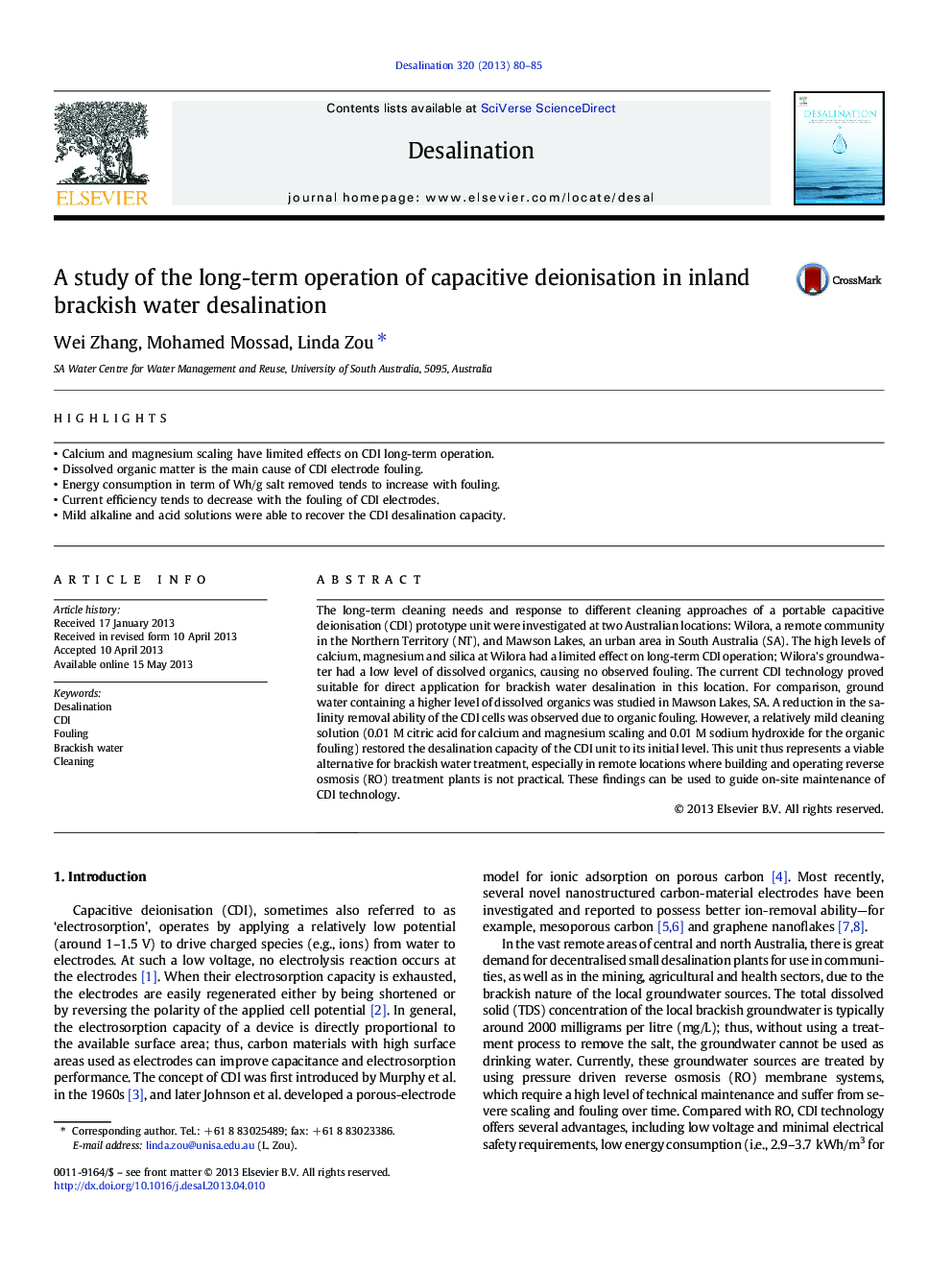| Article ID | Journal | Published Year | Pages | File Type |
|---|---|---|---|---|
| 624018 | Desalination | 2013 | 6 Pages |
•Calcium and magnesium scaling have limited effects on CDI long-term operation.•Dissolved organic matter is the main cause of CDI electrode fouling.•Energy consumption in term of Wh/g salt removed tends to increase with fouling.•Current efficiency tends to decrease with the fouling of CDI electrodes.•Mild alkaline and acid solutions were able to recover the CDI desalination capacity.
The long-term cleaning needs and response to different cleaning approaches of a portable capacitive deionisation (CDI) prototype unit were investigated at two Australian locations: Wilora, a remote community in the Northern Territory (NT), and Mawson Lakes, an urban area in South Australia (SA). The high levels of calcium, magnesium and silica at Wilora had a limited effect on long-term CDI operation; Wilora's groundwater had a low level of dissolved organics, causing no observed fouling. The current CDI technology proved suitable for direct application for brackish water desalination in this location. For comparison, ground water containing a higher level of dissolved organics was studied in Mawson Lakes, SA. A reduction in the salinity removal ability of the CDI cells was observed due to organic fouling. However, a relatively mild cleaning solution (0.01 M citric acid for calcium and magnesium scaling and 0.01 M sodium hydroxide for the organic fouling) restored the desalination capacity of the CDI unit to its initial level. This unit thus represents a viable alternative for brackish water treatment, especially in remote locations where building and operating reverse osmosis (RO) treatment plants is not practical. These findings can be used to guide on-site maintenance of CDI technology.
